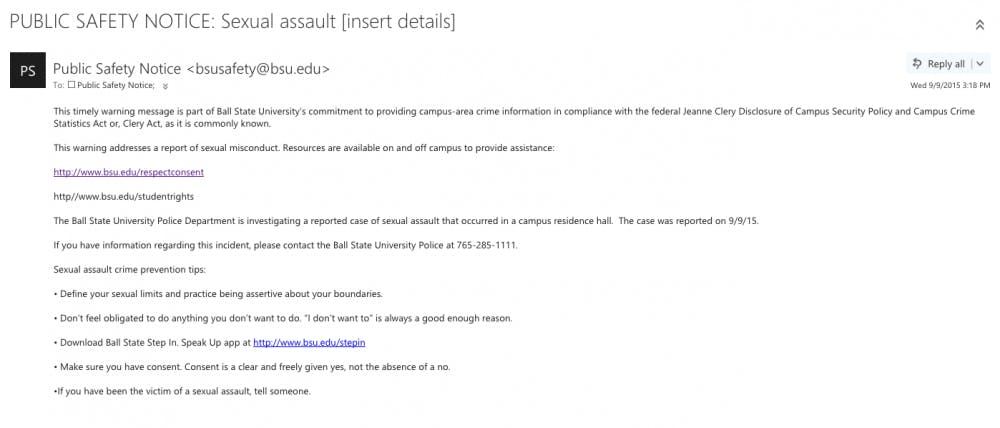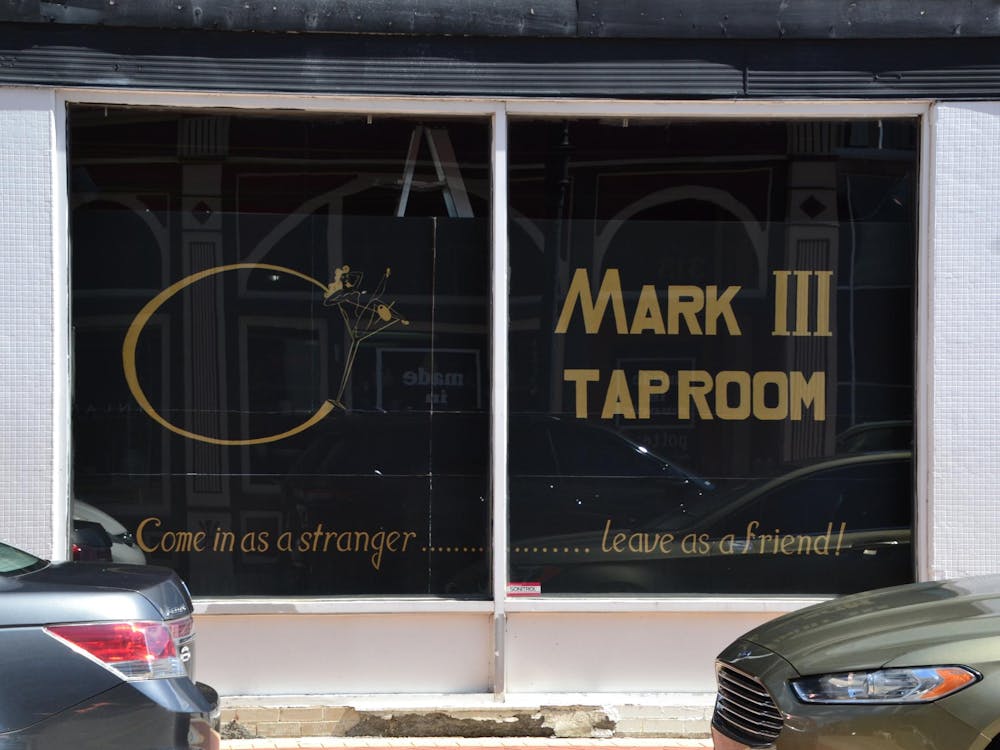In the first ever public safety alert for a sexual assault on campus, information that would typically be found in a police report was not included and left some students wondering.
The email was sent out Sept. 9 by Ball State’s Department of Public Safety, and didn't include information like the location, a description of the perpetrator and when the incident happened.
Other schools in Indiana release more details than Ball State does in cases of sexual assault, and other crimes, on campus. Purdue University gives students details on the incident date, time, type, location and suspect information. Indiana University also alerted students about suspect details and updates in a recent sexual assault incident.
Alan Hargrave, chairman of the university’s crisis management team, said emergency notifications are strategically distributed and outlined by the Clery Act, a federal law that requires universities to share information on crime with the public.
“Efforts are made to ensure that individuals are not identified, and that information is not included in the advisory which could lead to the identification of the victim, such as the name of the residence hall,” Hargrave said. “It may appear to some that the advisory is generic, but the notices are issued this way out of the necessity to protect the victim to the best of our ability.”
In the alert that was sent out, it wasn't clear if any action had been taken, but Joan Todd, university spokesperson, said Sept. 10 there were "no updates, further details or arrests" other than what had already been stated.
Ball State issues three types of emergency alerts to students and faculty. Two of these alerts, Public Safety Advisories and BSUInform Notices, are sent through email alone because the information does not require recipients to take immediate action to protect themselves, Hargrave said. Emergency warnings—serious situations that require recipients to take action—are reserved for more urgent matters and are distributed through text alerts, as well as email messages.
In instances of sexual assault, Hargrave said Public Safety Advisories are issued to help alert the campus and provide helpful information to the community.
When a significant emergency or dangerous situation is confirmed to exist, the Department of Public Safety will take into account the safety of the community to determine what information to release and begin the notification process “without delay,” Hargrave said.
Once the University Police Department receives the report, the director of public safety reviews the information to determine if the criteria is met to issue a Public Safety Advisory.
“Sometimes, victims are traumatized by the event and are unable to bring themselves to immediately report,” Hargrave said. “Because of this, a report may not be received until many days after the attack.”
The Clery Act outlines what geographical boundaries universities use for reporting Clery-reportable crimes, including sexual assault. With the implementation of the Violence Against Women Act in July 2014, timely warnings are required to be issued with the same requirements, said Kay Bales, vice president for student affairs and dean of students.
“The issuance of timely warnings, such as the one disseminated last week, are one aspect of Ball State’s adherence to federal regulations,” Bales said. “The protection of a victim’s identity is paramount, and those protections are provided for in the federal regulations, which state the disclosure of personally identifiable information is prohibited.”
All Ball State professionals involved in handling sexual violence cases are “well-trained” and “take seriously the responsibility to shield the victim’s identity," Bales said.
Hargrave said an overwhelming number of sexual assault reports occur between people who know each other — often involving alcohol or other drug use.
“We strongly encourage the reporting of sexual assaults and have many campus resources available to assist,” Hargrave said.
If a student was grabbed as they walked through a campus parking lot and was sexually assaulted by an unknown person who then fled, the university would issue an emergency alert— sexual assault falls under the Clery Act, the crime occurred on campus and the attacker fled, so they could still pose a risk to campus, Hargrave said.
However, if the attacker was caught by police immediately and was in custody, an alert may not be issued because there isn't a continuing threat. The university may just send out a Public Safety Advisory to remind students to be safe.
If the crime does not occur on campus property, then a Public Safety Advisory would not be issued.





